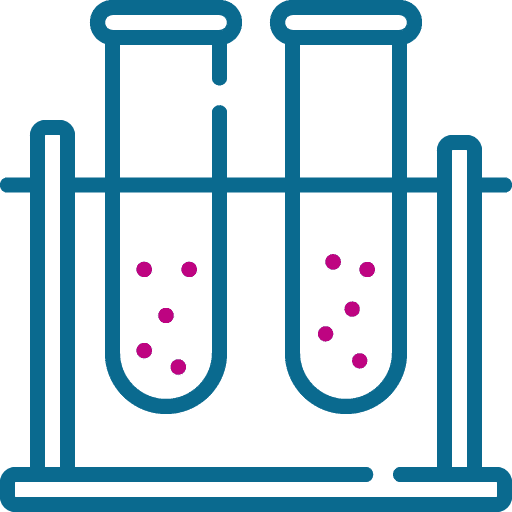Chorionic gonadotropin (HCG)
Chorionic gonadotropin is the main laboratory test for normal pregnancy. It can also be used as a marker for cancer.

During a normal pregnancy, hCG levels rise very quickly. It doubles every 1-3 days during the first 6 weeks and reaches a peak (100 000 U/L) around week 14. Modern tests allow you to detect pregnancy with an hCG test 6-10 days after conception. If hCG levels continue to rise after the 14th week of pregnancy, trophoblastic disease may be suspected. Above 100,000IU/l – choriocarcinoma, a cancer originating from trophoblastic placental cells.
Chorionic gonadotropin, βhCG combined with progesterone as an additional test can be used to diagnose ectopic pregnancies. Therefore, it is recommended to test blood levels of βhCG in women with suspected ectopic pregnancies. This happens when the fertilised egg attaches outside the uterus, and in women at risk who have a history of ectopic pregnancies or pelvic inflammatory disease.
The chorionic gonadotropin, βhCG, test is performed during the first trimester (between 11 and 14 weeks of pregnancy) to assess the risk of fetal malformations and the likelihood of the fetus having one of two major chromosomal disorders: Down’s syndrome or Edwards syndrome. However, it is recommended that the test be performed in combination with pregnancy plasma protein A (PAPP-A), as the sensitivity of detecting the risk of birth defects is significantly increased when both parameters are assessed together.
It is also used as a cancer marker because its β subunit is secreted by germ cell cancer cells. Normally, βhCG is not detectable in the blood of men and women without signs of pregnancy, so its increase is associated with oncological pathology.
βhCG is increased in the following cancers:
– Seminoma (testicular cancer);
– Germinal cell ovarian and testicular cancer;
– In trophoblastic disease and choriocarcinoma.
The βhCG test is useful not only for diagnosing oncological diseases, but also for assessing the effectiveness of treatment – a decrease during treatment indicates a good response to treatment, while a high or rising level indicates ineffective treatment. If we find elevated βhCG after treatment, we may suspect a relapse. For the diagnosis of benign ovarian and testicular cancer and for the evaluation of treatment efficacy, the sensitivity of the test is greatly increased if the liver and testicular cancer marker α-fetoprotein (AFP) is used together with βhCG.
You can consult our family doctors.



